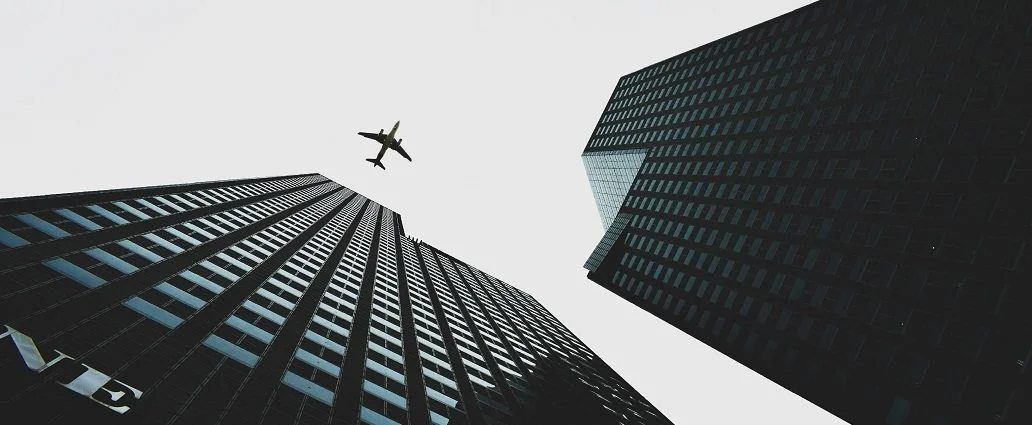If you had to look back to the ancient, long-forgotten days of 2018, you’d probably the year with two words: “strikes” and “bankruptcies.” So what could we say about 2019? Well, the year had its own share of strikes and bankruptcies, but there were other developments as well. Hooray for variety in events! So here’s what 2019 in aviation looked like.
Airline bankruptcies
Thomas Cook Group, a travel organizer that started out in the 19th century to facilitate train travels of pilgrims in the UK, collapsed in September. This brought down the Thomas Cook Airlines, stranding hundreds of thousands. As a result of this, the largest peacetime repatriation effort in British history was carried. This majestic logistical effort brought back 150,000 passengers. The fall of the company also resulted in a lot of headaches for tourists who had engaged the group as a tour operator, as it defaulted on payments to hotels and such.
But smaller companies also bit the dust. Germania folded in February, and so did Flybmi. The former is not to be mixed up with Flybe, which survived by finding a new owner in time. WOW air also went bankrupt in 2019, ceasing trading in March. The people behind almost immediately started making sounds about possibly rebranding and restarting, the most solid plan of which seems to be PLAY, an airline that supposed to operate two leased Airbus A321s. March also saw the end of Jet Airways, an Indian carrier. European airlines did not experience any shocks in June or July, but Thomas Cook’s demise in September was preceded by Aigle Azul folding on the 2nd and succeeded by Adria Airways suspending operations on the 30th. Speaking of less painful collapses, Air France ended its Joon brand in January and reabsorbed its planes into its fleet.
Aviation strikes
There was a fair share of aviation strikes in 2019. However, unlike in 2018, they weren’t limited mostly to a single airline. For example, British Airlines apparently bungled into the biggest strike in its century of operation by trying strongarm tactics when dealing with the British pilot union. As a result, the airline was forced to cancel 150,000 flights, thus seriously upsetting 280,000 passengers. BA’s attempt to deal with pilots’ grievances by not really dealing with them reportedly cost the airline 80 million pounds in revenue.
Lufthansa had to cancel 1300 flights over a 48-hour strike in November. The airline tried – and failed – to get the court to stop the industrial action before it even began. As a result, 180,000 passengers had their flights disrupted. And in December, the largest strike in the history of France – everyone is walking out over the pension reform – also affected aviation. Air France staff walked out – and so did the air traffic controllers. Even non-French companies were affected, cancelling hundreds of flights.
Lesser in scale and not really the fault of the airlines, airport staff strikes also negatively affected the aviation industry. Baggage handlers and security were among the most aggrieved. Air traffic controllers, so critically important to the whole business of “flying planes without crashing into each other,” don’t seem to catch a break. They went on strike nearly 20 times in Europe. A few more disruptions were caused by ATC equipment going haywire.
Airplane crashes and Boeing 737 MAX 8 ban
However, there were some quite tragic events as well. On March 10, an Ethiopian Airlines Boeing 737 MAX 8 crashed shortly after takeoff. It killed all 157 people aboard. However, since it wasn’t the first crash that a Boeing 737 MAX 8 experienced in the recent month, people sprung into action.
The entire worldwide fleet was grounded, leading to a lengthy investigation that uncovered many issues with the design of the airplane, the training related to its operation and so on. The future of the model remains unclear.
Another high-profile crash was of the Aeroflot Flight 1492 on May 5. As the landing gear collapsed on landing, fuel spilled from the wings and ignited. 41 of 87 passengers were not able to evacuate and died. At the time of the crash, there was a lot of speculation about whether the evacuation was fatally delayed by passengers trying to grab their luggage before leaving. Whatever the case, this was not the first incident involving the Sukhoi Superjet 100, which prompted investigations into the model.
Strikes, bankruptcies, and crashes make it seem like 2019 wasn’t the best year to fly. What will 2020 bring us? Hopefully, the proof that airlines are learning from their mistakes, which will lead to increased stability in the airline market as well as fewer strikes. And if your flights keep getting disrupted – if you experience flight delays, canceled flights or overbooking – know that Skycop intends to stand by you in 2020 the same as it did the years before. Claim flight compensation with Skycop and let’s fight for air passenger rights together!
Related articles:
France Is Undergoing It’s Most Massive Strike In Decades
European Commission Updates EU Air Safety List
5 Supersonic Jets That May Bring Back Faster Than Sound Travel
Bad News for Phone Addicts: Cells and Planes Won’t Get Along
Bird Strikes an Airplane Every 24 Minutes: Do You Have to Worry?
